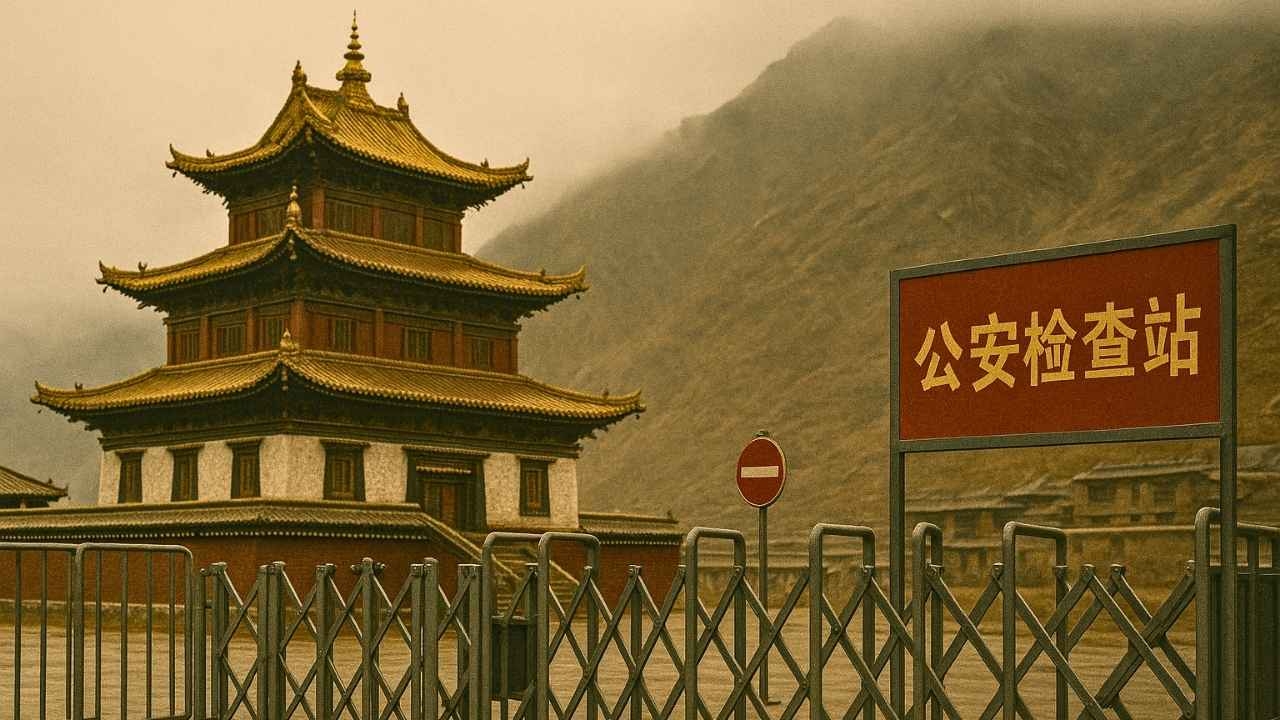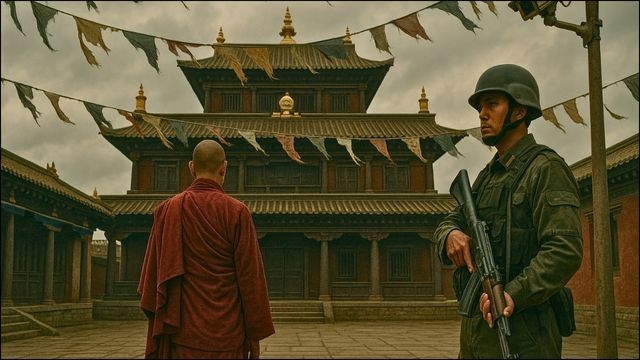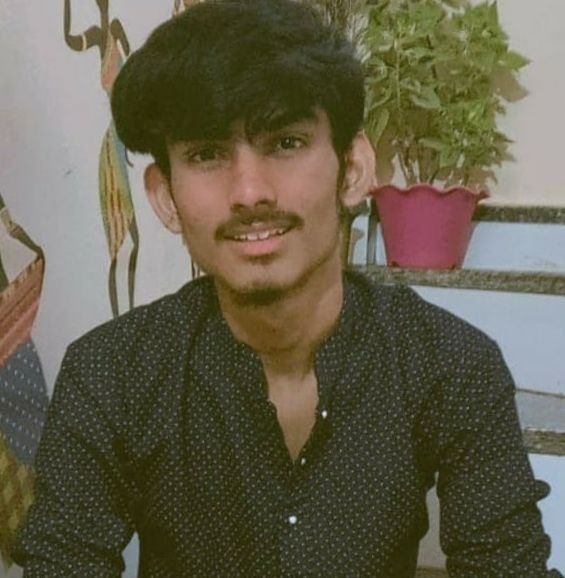China’s War on Faith: Chronology of Repression, Persecution and Cultural Erasure of Tibetan Buddhism
A detailed record of China’s long effort to curb Tibetan Buddhist life through arrests, controls, demolitions and strict rules that reshape faith and culture.
Total Views |

China’s policy toward religion has increasingly come to resemble a wide and systematic war on faith, driven by strict state control, surveillance, and the suppression of spiritual expression. Although China’s constitution claims to grant freedom of belief, the government itself is officially atheist and operates under the leadership of the Chinese Communist Party. As a result, only state approved patriotic religious associations are permitted, and members of the clergy are required to demonstrate loyalty to the Party and follow government promoted Sinicisation of religion.
The state imposes severe restrictions on religious practice, especially on groups not registered with the government or those that fail to align with its expectations. Regulations limit the activities of religious institutions, while religious leaders face imprisonment, surveillance, and bans on engaging with the public. Children are prohibited from attending religious events.
At the centre of China’s approach lies the belief that loyalty to the Communist Party must override all other identities, including spiritual and cultural ones. This has led to widespread restrictions on Christians, Muslims, Buddhists, Falun Gong practitioners, and even traditional Chinese spiritual communities. Churches are demolished or stripped of crosses, mosques are closely monitored, temples are regulated, and religious leaders must pledge allegiance to the state. Independent religious activity, such as gathering, teaching, or worshipping outside official structures, is treated almost as a threat to national security.

Across the last sixteen years, China has intensified its crackdown on Tibetan Buddhism and prominent spiritual leaders across Tibet and other ethnic minority regions. Enforced disappearances, secret trials, demolition of monasteries, and the criminalisation of religious identity reflect a consistent campaign aimed at reshaping Tibetan culture into a form approved by the Communist Party.
This report presents a detailed chronology of Beijing’s expanding assault on monks, monasteries, and the spiritual heritage of Tibet.
I. Crackdown on Prominent Buddhist Leaders (2025)
1. Ex Shaolin Abbot Shi Yongxin Arrested
Date: 16 November 2025
Chinese authorities approved the arrest of former Shaolin Temple abbot Shi Yongxin, accusing him of embezzlement, misappropriation of temple funds, and accepting bribes. Beijing cancelled his ordination and claimed his actions had harmed the Buddhist community.
2. Tibetan Abbot Jamyang Lekshay Secretly Sentenced
Date: 16 August 2025
Abbot Jamyang Lekshay, arrested in February 2024 for peacefully opposing China’s Kamtok Dam project, was secretly sentenced to four years in prison. Footage showed him pleading with officials as ancient monasteries faced submersion. Authorities conducted re education drives and imposed harsh reprisals on monks.
3. Monk Kunchok Choedak Arrested and Missing
Date: 14 August 2025
Kunchok Choedak, acting head of Hor Tsang Kirti Monastery, disappeared following his 2014 arrest. His home was raided, monastery documents seized, and Beijing has not revealed his location or health.
4. Monk Jailed for Honouring the Dalai Lama: Lobsang Gephel
Date: 30 August 2025
Lobsang Gephel was arrested for celebrating the Dalai Lama’s 80th birthday. Held incommunicado for nearly a year, he was later sentenced in 2016. UN experts condemned China for targeting him.
5. Detention of Monk Zega Gyatso
Date: 25 August 2025
Zega Gyatso, aged 48, was detained in Xining while seeking medical care and has been held incommunicado for two months. Authorities accused him of sending funds to India, a charge his family dismissed as politically motivated.
6. Suicide of Geshe Shersang Gyatso
Date: 18 August 2025
Respected monk Geshe Shersang Gyatso died by suicide to protest continued surveillance, raids, and expulsions around the Dalai Lama’s 90th birthday.
7. Destruction of 300 Buddhist Stupas in Drakgo County
Date: 22 July 2025
Over 300 stupas and sacred statues, including those of Guru Padmasambhava, were demolished. Public gatherings were banned and an information blackout imposed.
II. Systematic Suppression of Tibetan Religious Practices (2024 to 2025)
8. Restrictions During the Butter Flower Festival
Date: 12 February 2025
Heavy security forces prevented believers from approaching sacred butter sculptures at Kumbum Monastery, and Tibetans were compelled to sign anti religion pledges.
9. New Law Tightening State Control Over Temples
Effective: 1 January 2025
The 2024 regulation requires ideological loyalty, effectively turning monasteries into political outposts of the Communist Party.
10. Expulsion of More Than 1,000 Monks from Larung Gar
Dates: November to December 2024
More than one thousand monks were expelled under residency related pretexts, continuing a long pattern of demolitions and ideological policing.
11. Forced Removal of 500 Young Monks
Date: 9 November 2024
More than 500 monks were removed from Taktsang Lhamo Monastic School and placed in state run boarding institutions.
12. Suicide of 17 Year Old Monk Kunzang Longyang
Date: 30 May 2024
Longyang took his life after being removed from the monastery under rules barring monks under the age of 18, which caused extreme psychological pressure.
III. China’s Global Strategies to Reshape Buddhism (2023)
13. CCP’s International Influence Campaign
Date: 17 June 2023
China used soft power by funding Buddhist sites abroad and promoting the China Buddhist Association to present itself as the global centre of Buddhism, while marginalising Tibetan Buddhist traditions.
14. Violent Disruption of Kalachakra Teachings
Date: 19 July 2023
At Athi Monastery, authorities demolished tents, destroyed the sand mandala, and expelled devotees, despite earlier approval.
15. Boycott Call Against Tibetan Monks in Yunfu City
Date: 27 July 2022
Authorities labelled Tibetan monks as providers of illegal missionary activity and encouraged temples to report any visiting Tibetan monk.
IV. Criminalisation of Tibetan Religious Identity (2011 to 2022)
16. Monk Jailed for Sending Offerings to the Dalai Lama
Date: July 2022
Rachung Gendun received a three year sentence for sending offerings to the Dalai Lama.
17. New Re Education Drives Across Monasteries
Date: May 2022
Monks and nuns were forced to adopt three consciousnesses and condemn traditional practices such as Saka Dawa fasting and animal liberation.
18. Expulsion of Teenage Monks
Date: 4 November 2021
Monks aged between 11 and 15 were expelled from several monasteries.
19. Ban on Online Religious Content
Date: 20 December 2021
China introduced a law banning all unlicensed religious content online, directly targeting Tibetan monks and writers.
V. Large Scale Demolitions, Expulsions and Surveillance (2018 to 2020)
20. Closure of the Bodhi Institute
Date: 2 January 2020
More than 4,820 monks and nuns were expelled and over 7,000 structures demolished.
21. Political Loyalty Tests for 30,000 Monks and Nuns
Date: 25 March 2019
Authorities evaluated monks on national security laws, which effectively served as political loyalty tests.
22. Ban on Admissions at Larung Gar
Date: 21 April 2019
Strict entry and exit controls were introduced, and surveillance walls were erected around the area.
23. Yachen Gar Demolitions
Date: 1 October 2019
Between 5,000 and 6,000 monks and nuns were forcibly removed.
24. Forced Transfer of 15 Year Old Monks
Date: 14 July 2018
Teenage monks from Sershul County were forcibly moved to secular schools.
25. Training Monks to Promote CPC Ideology
Dates: 31 May to 2 June 2018
Monks were recruited as Buddhist facilitators to promote Party ideology.
26. Ban on Dalai Lama’s 83rd Birthday Celebrations
Dates: June to July 2018
Authorities deployed police, expanded online censorship, and detained individuals across Tibetan regions.
27. Loyalty Tests for India Trained Monks
Date: 15 May 2018
Monks trained in India were blacklisted unless they passed Communist Party loyalty exams.
VI. Earlier Waves of Crackdown (2011 to 2017)
28. Ideological Training After CPC Congress
Dates: 18 to 24 October 2017
Monks were pressured to align Buddhist teachings with socialist values.
29. Renewed Demolitions at Larung Gar
Date: 14 August 2016
Monks and nuns were forcibly removed and the population of the academy was significantly reduced.
30. Crackdown Before the Dalai Lama’s 80th Birthday
Date: 5 June 2015
Authorities banned public gatherings and displays of his image, and organisers were detained.
31. Patriotic Control Over Monasteries
Date: 8 April 2015
Monasteries were ordered to display national flags and undergo patriotism assessments.
32. Families Forced to Recall Monks from Institutes
Date: 24 October 2014
Officials used threats of withdrawal of aid to force families to bring home monks studying in Buddhist academies.
33. Ban on Dalai Lama Photos
Date: 15 July 2013
Vehicles were searched, photos confiscated, and civilians beaten and detained.
34. Violent Mass Detention of Monks
Date: 22 April 2011
More than 300 monks were detained during a siege on a monastery in Sichuan.
VII. Foundations of the Modern Crackdown (2009)
35. Detention of 109 Monks Before Uprising Anniversary
Date: 9 March 2009
Monks from Lutsang Monastery were detained for political education after they held a vigil for victims of the 2008 crackdown.
In a Nutshell
China’s sustained actions show a clear effort to weaken Tibetan Buddhism and reshape it under state control. This long timeline shows deep harm to monks, monasteries and the cultural life of Tibet.
Report by

Kewali Kabir Jain
Journalism Student, Makhanlal Chaturvedi National University of Journalism and Communication

